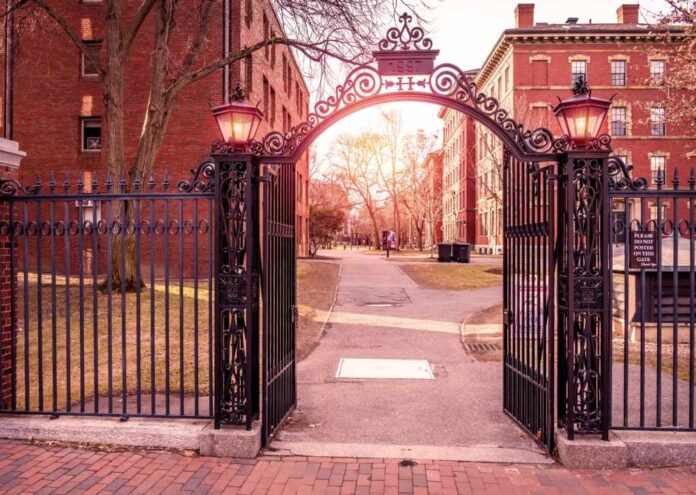
Harvard University is fighting back against the Trump administration’s decision to cut $60 million in federal grants, marking the latest chapter in an escalating battle over diversity policies and alleged anti-Semitism on campus.
At a Glance
- The Department of Health and Human Services (HHS) has revoked $60 million in federal grants to Harvard University
- This is the third round of funding cuts, with over $2.2 billion in federal grants previously frozen
- HHS cited Harvard’s “continued failure to address anti-Semitic harassment and race discrimination”
- Harvard has filed a lawsuit claiming the funding freeze violates the First Amendment and federal law
- Harvard President Alan Garber announced the university will use $250 million of its own funds to support research
Federal Grant Termination Details
The Department of Health and Human Services announced the termination of $60 million in federal grants to Harvard University, marking the third major funding cut by the Trump administration. The announcement came via a post on X (formerly Twitter), with HHS specifically citing Harvard’s handling of discrimination issues as the reason for the revocation.
According to a HHS report: “The Department of Health and Human Services (HHS) is terminating $60 million in federal grants to Harvard University, the latest escalation in the Trump administration’s efforts to pressure the Ivy League school into policy changes.” – HHS
In their official statement, HHS elaborated on the reasoning behind the decision, pointing to what they describe as Harvard’s failings in addressing discrimination issues on campus. This move affects multiple multi-year grant awards that would have totaled approximately $60 million over their full duration, delivering another significant financial blow to the university.
— Paul Bond (@WriterPaulBond) April 19, 2025
Broader Context of University Funding Cuts
The latest grant termination is part of a larger pattern of funding cuts directed at Harvard. The Trump administration has previously frozen over $2.2 billion in federal grants to the university, creating significant financial pressure. Education Department Secretary Linda McMahon took a firm stance on the issue, suggesting a complete paradigm shift in how Harvard should be funded going forward.
“Harvard will cease to be a publicly funded institution, and can instead operate as a privately-funded institution, drawing on its colossal endowment, and raising money from its large base of wealthy alumni.”, said Education Department Secretary Linda McMahon.
The conflict originated in March when the administration sought to impose new rules on schools hosting pro-Palestinian protests, which President Trump labeled as “illegal” and anti-Semitic. Since then, the situation has escalated into a broader confrontation over issues including academic freedom, diversity initiatives, and the extent of government control over educational institutions.
Harvard’s Response and Legal Challenge
Harvard has not accepted these funding cuts passively. The university has filed a lawsuit against the Trump administration, arguing that the funding freeze violates both the First Amendment and federal law. This legal challenge represents Harvard’s attempt to defend what it sees as its institutional independence and constitutional protections against government overreach.
In a show of financial resilience, Harvard President Alan Garber announced that the university will allocate $250 million of its own funds to support ongoing research projects. This move demonstrates Harvard’s determination to maintain its research programs despite the significant reduction in federal support, drawing on its substantial endowment resources.
Deeper Ideological Divisions
The conflict between Harvard and the Trump administration reflects deeper ideological divisions in American higher education. The administration has demanded specific policy changes from Harvard, including modifications to its disciplinary system, elimination of diversity initiatives, and implementation of external audits for university programs.
Critics of Harvard and similar institutions have long argued that many elite universities promote progressive viewpoints while suppressing conservative perspectives. The current funding dispute has brought these tensions to the forefront, turning Harvard into a high-profile battleground in the ongoing national debate over the proper role and political orientation of American universities.
— Richard Collins, The Internet Foundation (@RichardKCollin2) April 10, 2025

























